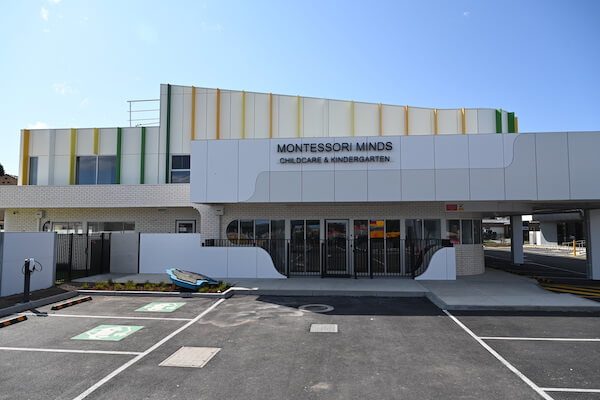About

Our Story
Montessori Minds Childcare and Kindergarten aims to provide quality Montessori education to children aged 6 weeks to 6 years, nurturing each child’s full potential and drawing out the best from their mind, body, and soul.
The idea of Montessori Minds Childcare and Kindergarten was conceived after the astounded success and satisfaction derived from HCMC. It was observed that there were very few Montessori centres in Geelong to cater to the needs of the families who are looking for an optimal education for their children in the first 2 important planes of development (0-3 years and 3 -6 years).
These are the formative years and 90% of the brain’s development happens during these years.
Benefits of Montessori Education
Montessori education offers our children opportunities to develop their potential as they step out into the world as engaged, competent, responsible, and respectful citizens with an understanding and appreciation that learning is for life.
- Each child is valued as a unique individual. Montessori education recognizes that children learn in different ways, and accommodates all learning styles. Students are also free to learn at their own pace, each advancing through the curriculum as he is ready, guided by the teacher and an individualized learning plan.
- Beginning at an early age, Montessori students develop order, coordination, concentration, and independence. Classroom design, materials, and daily routines support the individual’s emerging “self-regulation” (ability to educate one’s self, and to think about what one is learning), toddlers through adolescents.
- Students are part of a close, caring community. The multi-age classroom—typically spanning 3 years—re-creates a family structure. Older students enjoy stature as mentors and role models; younger children feel supported and gain confidence about the challenges ahead. Teachers model respect, loving kindness, and a belief in peaceful conflict resolution.
- Montessori students enjoy freedom within limits. Working within parameters set by their teachers, students are active participants in deciding what their focus of learning will be. Montessorians understand that internal satisfaction drives the child’s curiosity and interest and results in joyous learning that is sustainable over a lifetime.
- Students are supported in becoming active seekers of knowledge. Teachers provide environments where students have the freedom and the tools to pursue answers to their own questions.
- Self-correction and self-assessment are an integral part of the Montessori classroom approach. As they mature, students learn to look critically at their work, and become adept at recognizing, correcting, and learning from their errors.
